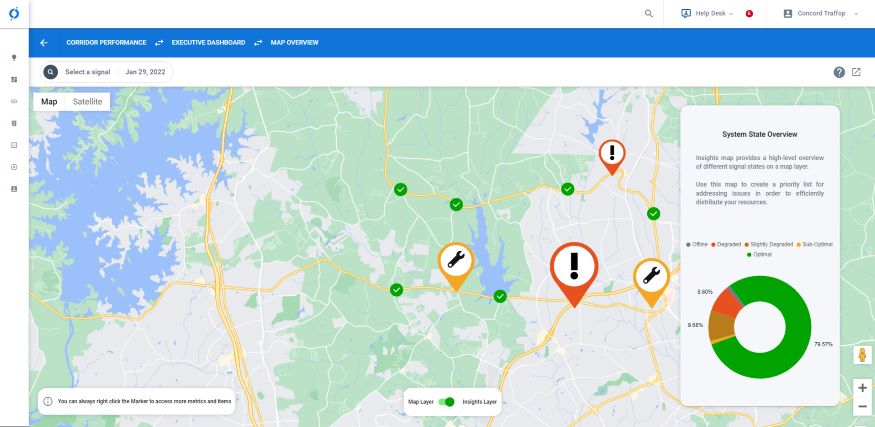
The transportation and mobility sectors outperformed other industries last month in an overall muted investment climate for corporate-backed deals.
There was a 77% increase in transport-related deals this April compared with the same month last year. While the monthly figures in this sector tend to fluctuate significantly, the recent spike is noteworthy given the potential for a recession and the recent fallout from the collapse of startup lender Silicon Valley Bank.
An economic downturn tends to lead to a bearish outlook for the broader transport and mobility industry but some CVCs just may be looking well past this. After all, the dream and goal of having electric cars replace internal combustion engine vehicles is alive and relevant, whether there’s a recession or not.
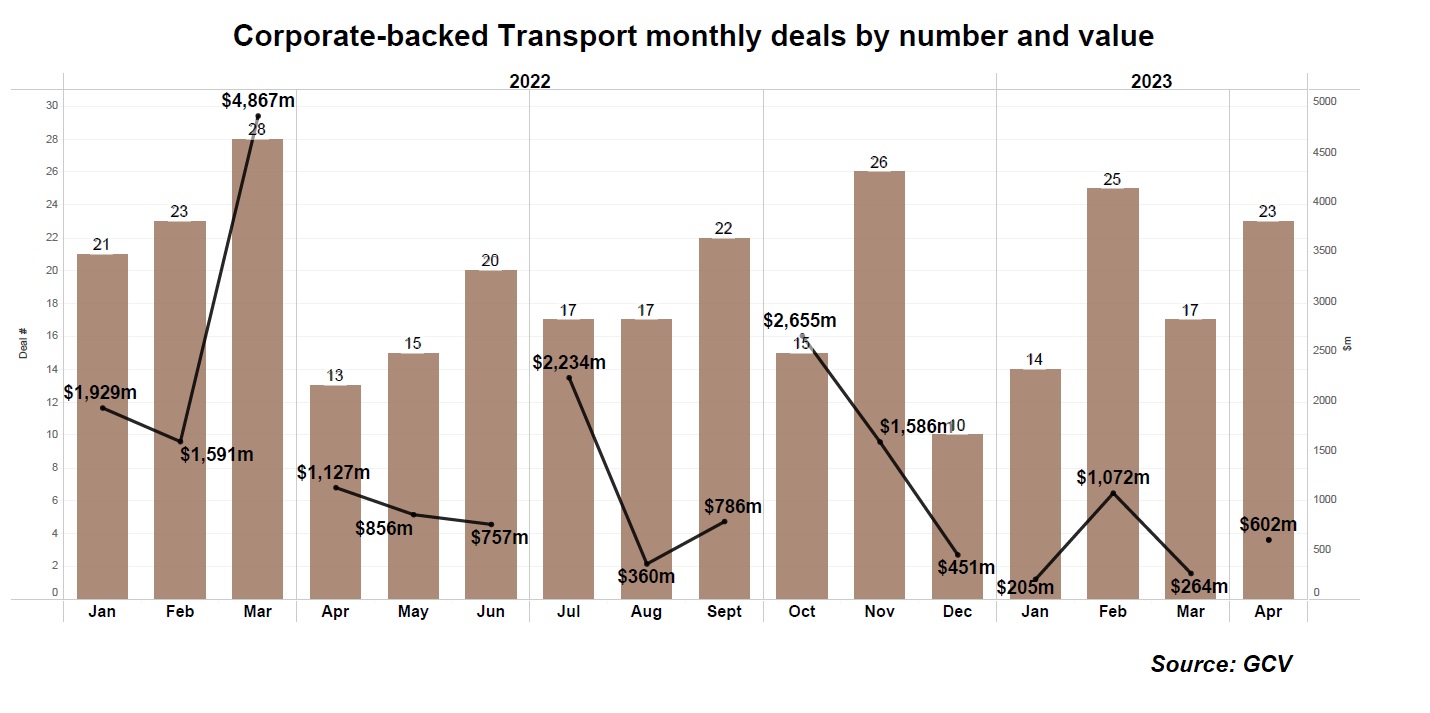
The following were some of the most noteworthy corporate-backed deals in this space from around the globe.

Canada-based traffic management platform Miovision raised a $260m of development capital from Telus Ventures, the venturing arm of telecoms firm Telus, Maverix Private Equity and Export Development also participated in the transactions. Founded in 2005, Miovision has developed a traffic management platform designed to collect in-house and outsourced traffic data for advanced traffic signal operations, allowing municipal governments to minimise the environmental impacts of inefficient transportation flow and improve the transportation experience for drivers, cyclists and pedestrians.
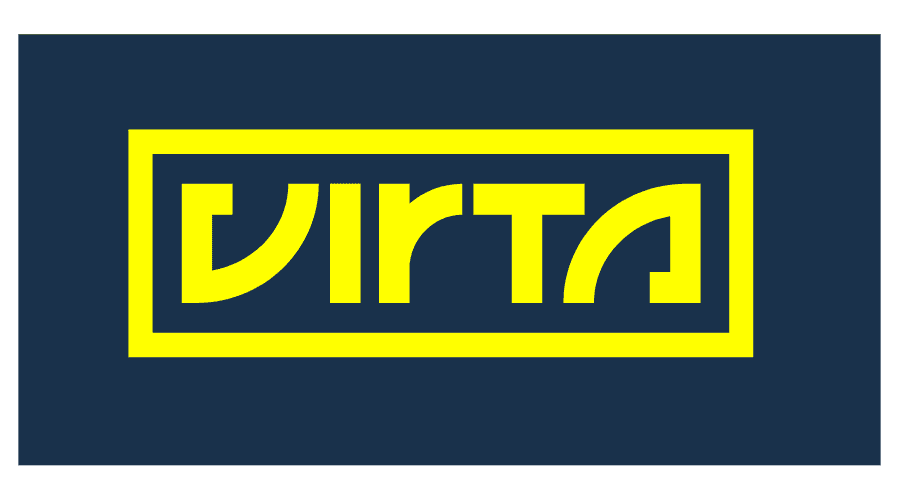
Finland-based electric vehicle charging platform Virta raised $71.8m round backed by several energy and utility companies including E.on (Future Energy Ventures) (co-lead), Helen (Helen Ventures), Lahti Energy, Vantaa Energy, Kotka Energy. Founded in 2013, Virta operates electric car charging stations, connecting EV drivers, charging points, and the energy system.
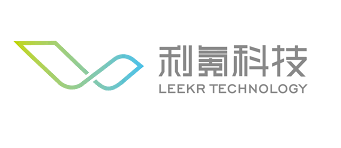
China-based automotive component maker LeeKr Technology raised RMB400m ($58.2m) of Series B venture funding in a deal led by Leaguer Venture Investment and CAS Investment Management, which featured automaker Beijing Automotive Group, among other investors. Founded 2020, LeeKr develops chassis control solutions designed for automobiles.

Japan-based micro-mobility sharing service provider Luup raised an estimated ¥4.5bn ($33.6m) in a Series D round through a combination of equity and debt and equity financing. The equity component (¥3.8bn of the total) was led by Spiral Capital with participation of the real estate investment trust Mori Trust Hotel. The company’s offers electric two-wheelers, four-wheelers, bicycles, kickboards and senior cars which can be booked via an app, picked up from different spots and dropped off at destination.
Overall CVC performance in April
The number of corporate-backed deals from around the globe stood at 324 in April, down 35% from the 495 rounds registered in the same month of 2022. Investment value stood at $8.4bn estimated capital –about a third of the $24.6bn of the same period last year.
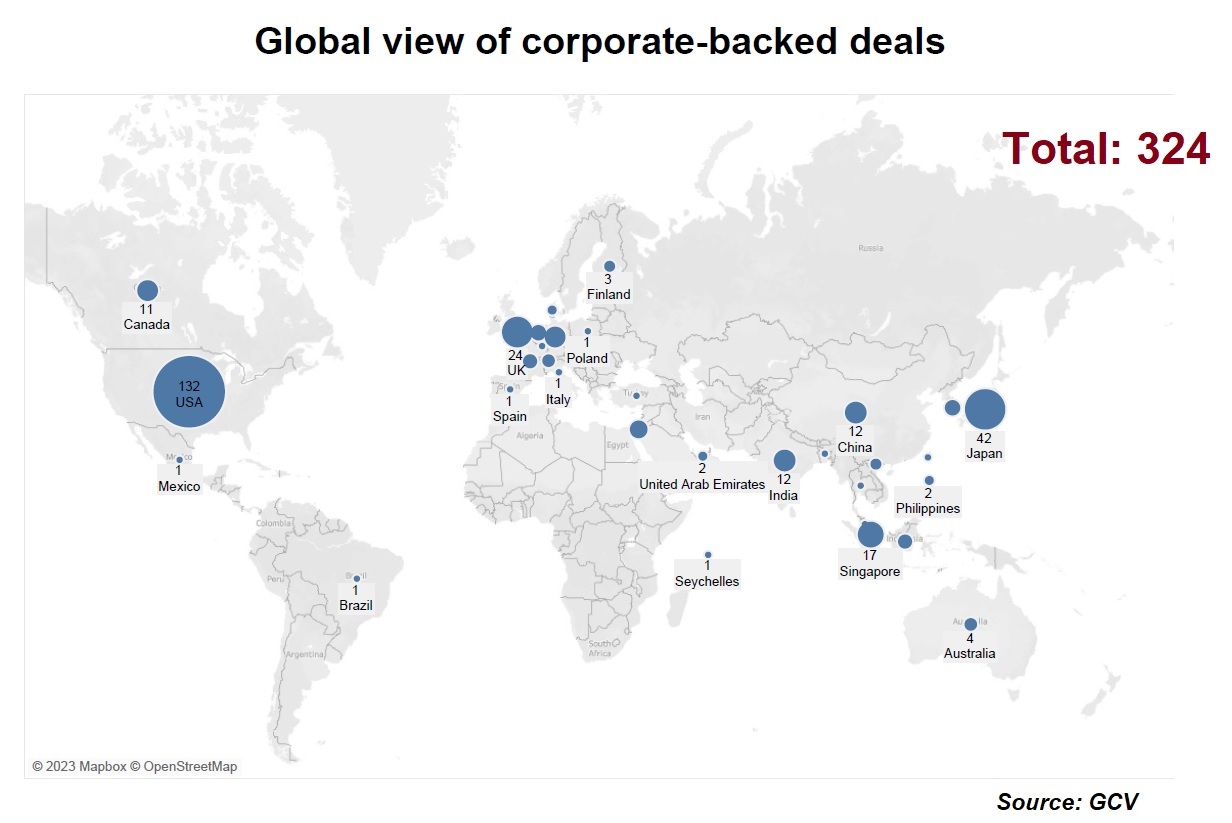
The US came first in the number of corporate-backed deals, hosting 132 rounds, while Japan was second with 42 and the UK third with 24.
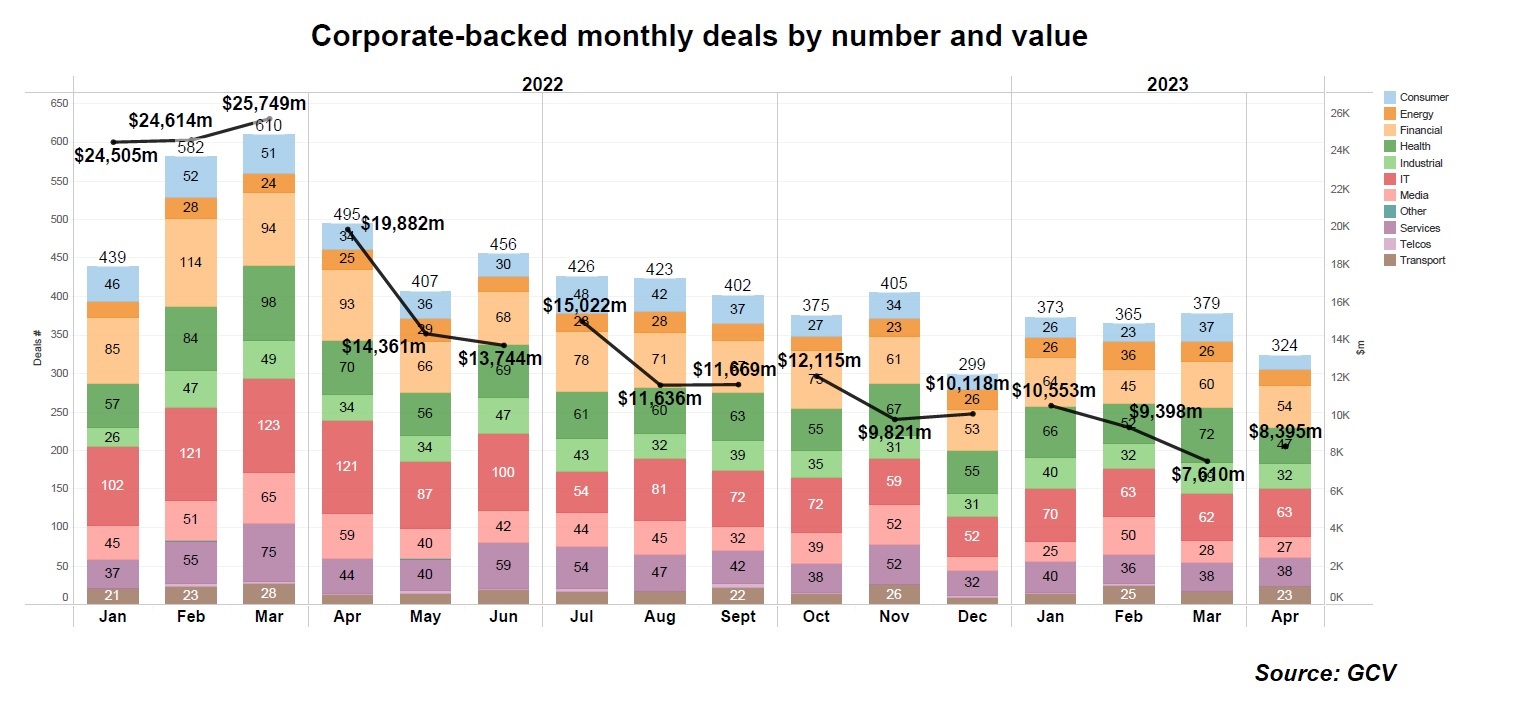
In virtually all of the large venture geographies, there were fewer or the same number of deals this April than in most previous months of this this year, as illustrated on the following chart.
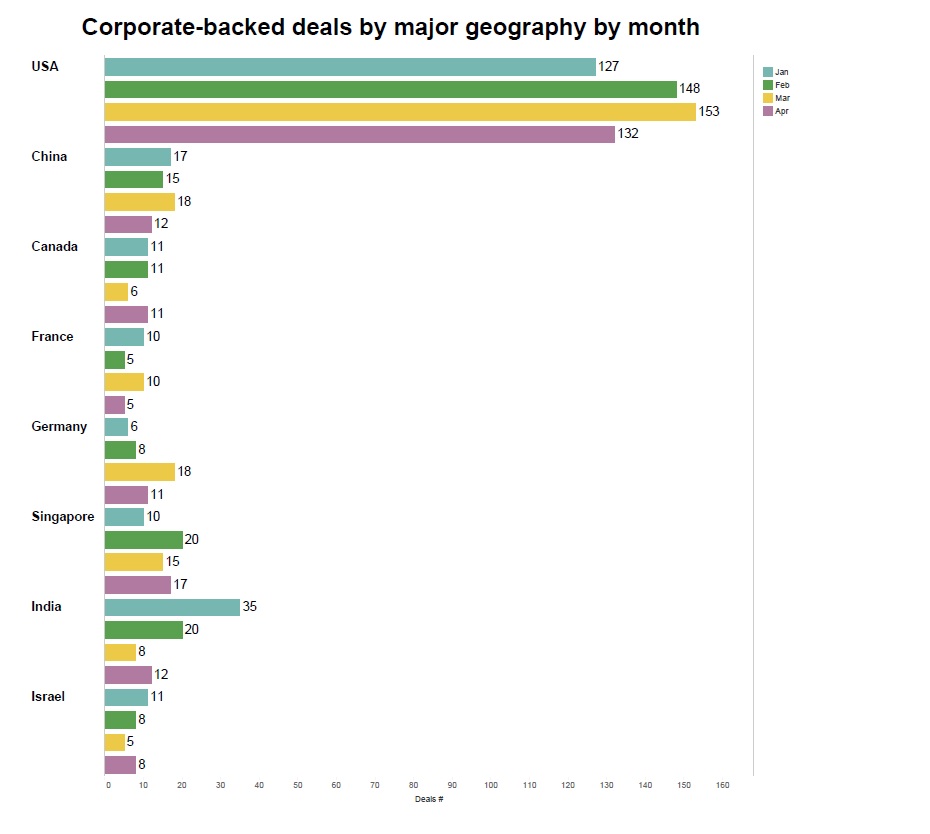
The leading corporate investors by number of deals were technology conglomerate Alphabet, life sciences real estate investment trust Alexandria Real Estate Equities and Chinese conglomerate Wanxiang.

Global Corporate Venturing (GCV) reported 15 corporate-backed funding initiatives in April, including VC funds, new venturing units and incubators. This was a lower number than in previous months of this year and much lower than the 30 initiatives recorded in April last year. The appetite for fundraising is tempered by macroeconomic conditions and the failure of Silicon Valley Bank, a large lender to startups.
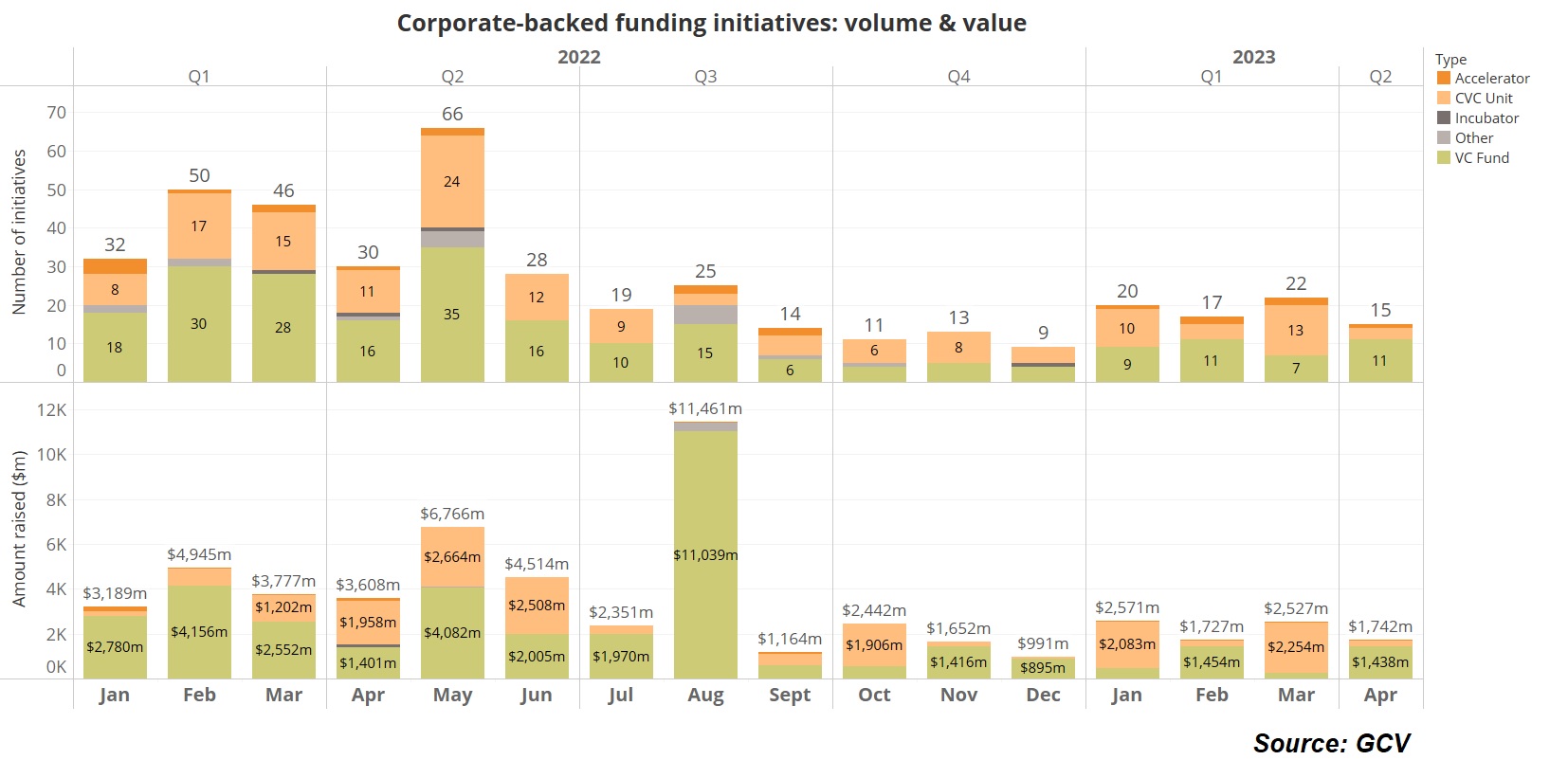
Deals
Emerging businesses from every sector raised fewer corporate-backed funding rounds this April than in the same month of last year.
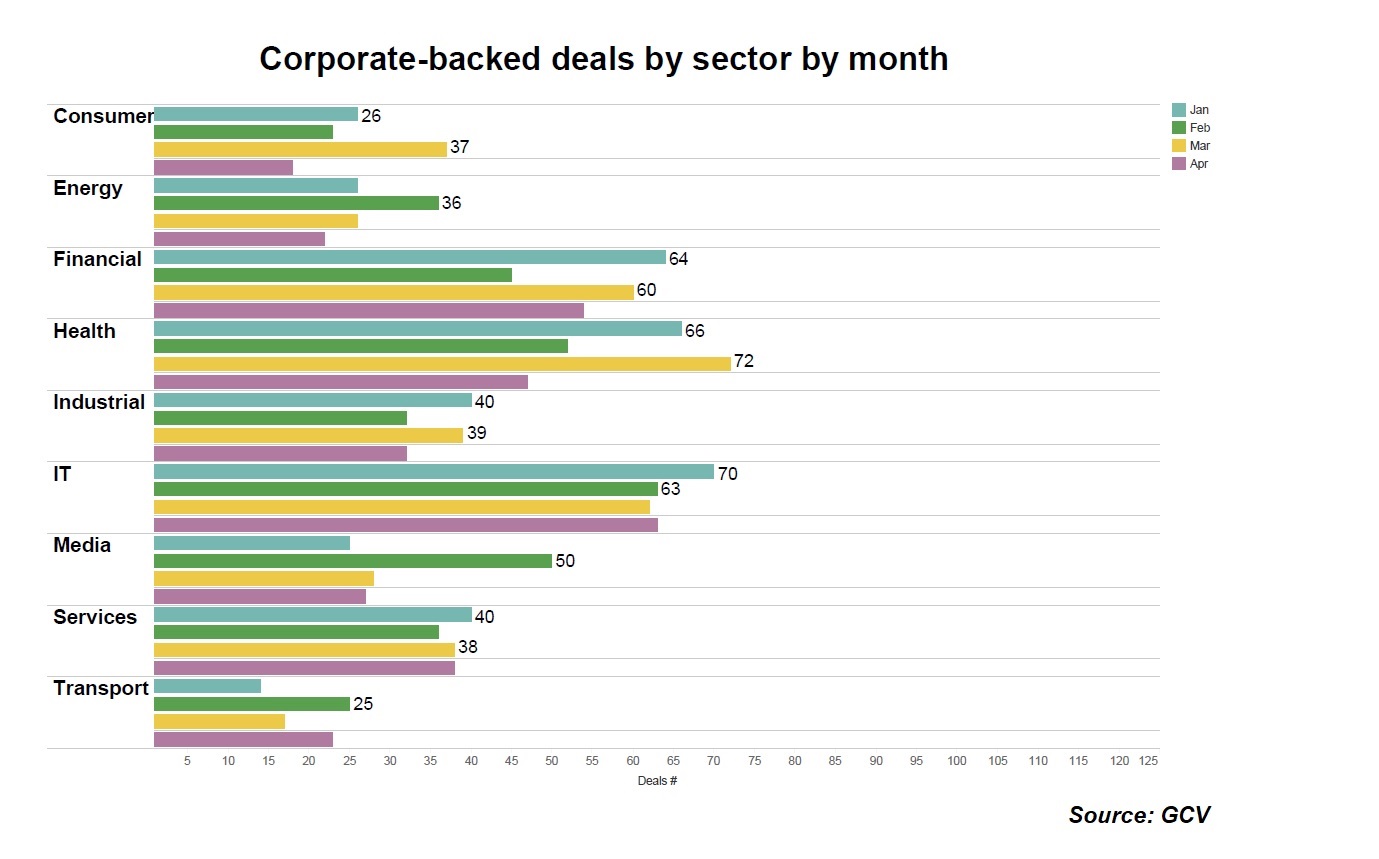
The most active corporate venturers came from the financial, IT, services and media sectors, as shown on the heatmap.
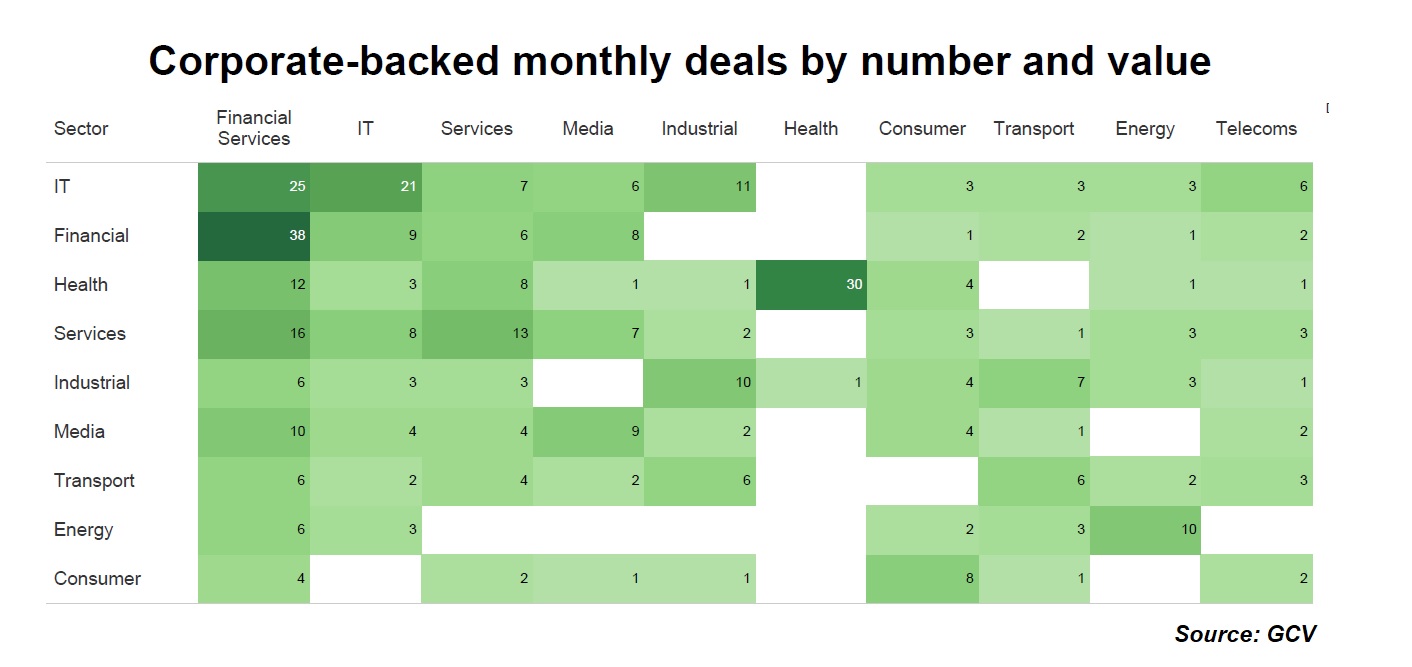
The top deals of April were concentrated in emerging businesses primarily from the energy and IT sectors.

We saw some interesting large deals.
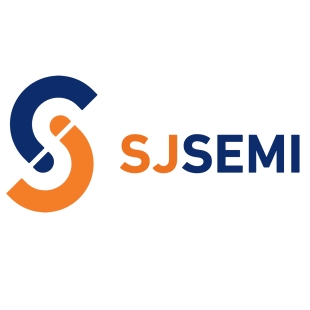
China-based outsourcing services provider for semiconductor technology SJ Semiconductor, (SJSemi) raised $640m in its extended series C funding round backed by electronics manufacturer Lenovo’s Legend Capital subsidiary. The company offers outsourced assembly and testing services for wafer bumping. The funding will be used to promote the construction of the second phase of the three-dimensional multi-chip integrated processing project.
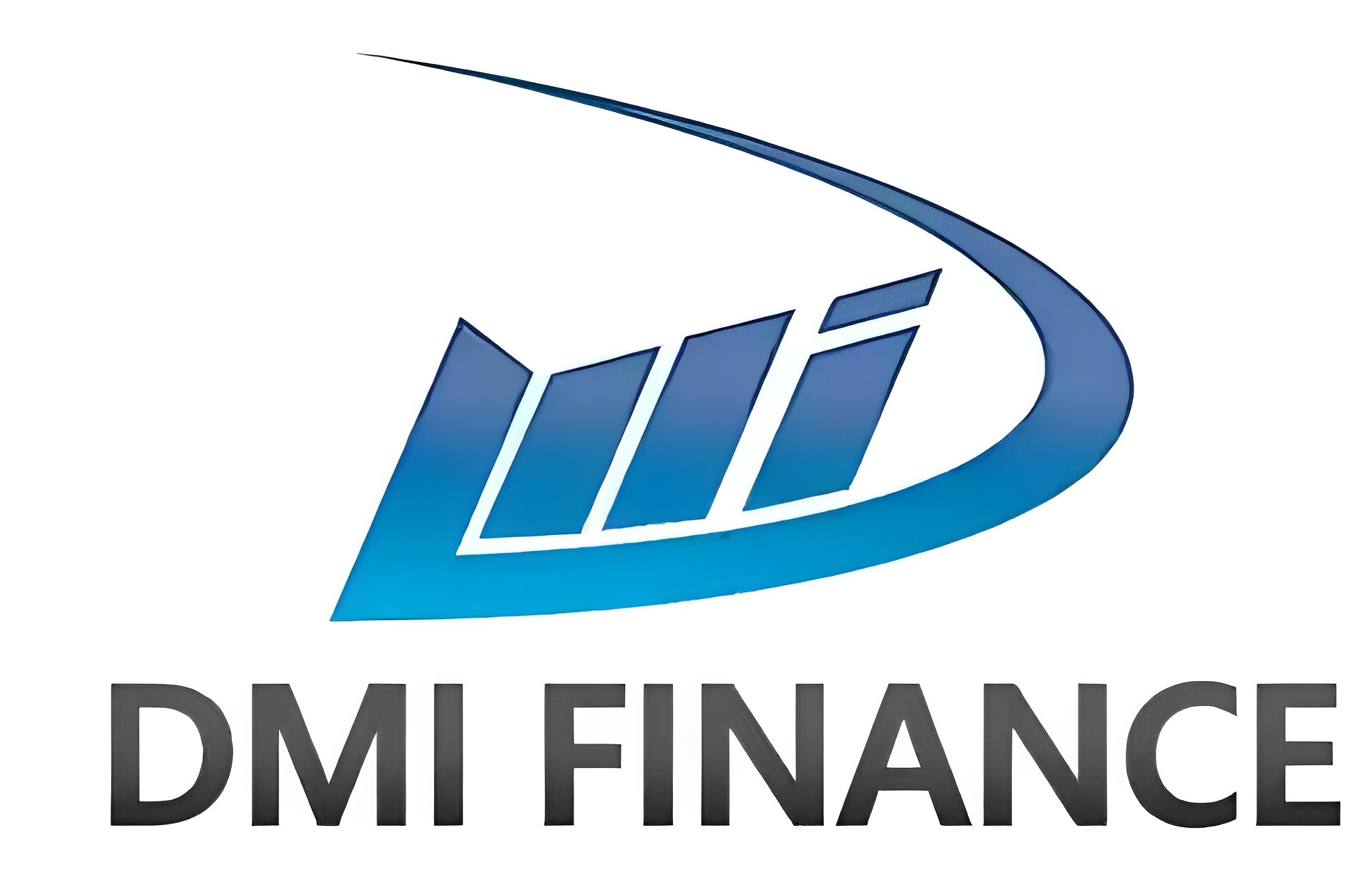
Mitsubishi UFJ Financial Group led a $400m equity funding round for India-based digital lending platform DMI Finance through subsidiary MUFG Bank. The round was made up of primary and secondary funding and also featured fellow financial services firm Sumitomo Mitsui Trust Bank. DMI Finance offers consumer, housing and corporate lending services in the Indian credit market.
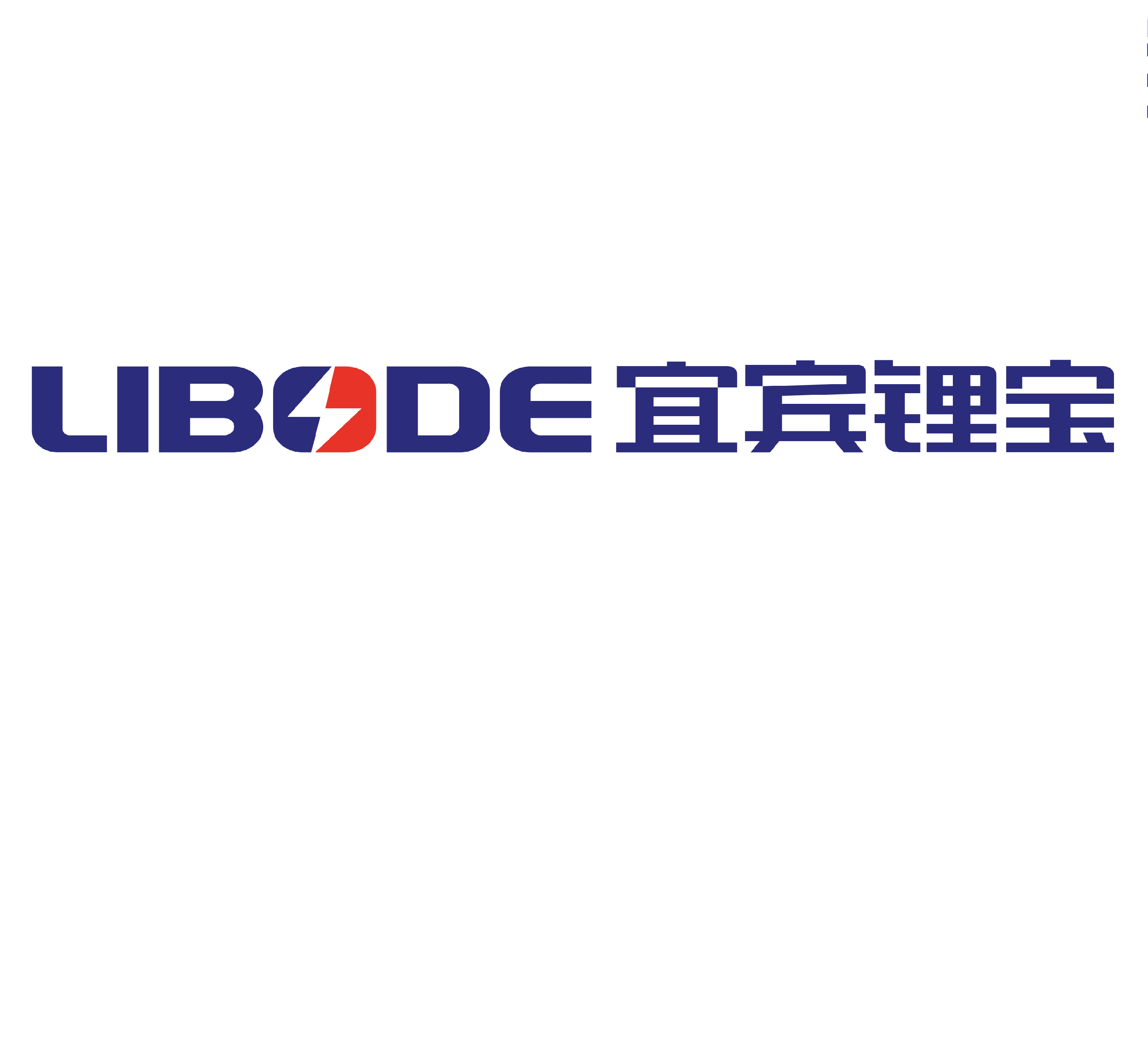
China-based lithium-ion battery cathode material provider Libode New Material raised RMB2.6bn ($375m) in series B funding from investors including carmaker GAC Group’s GAC Capital unit. Libode is the supplier, developer and manufacturer of cathode materials designed for lithium-ion batteries for electric vehicle power and computer, communication and consumer electronics.
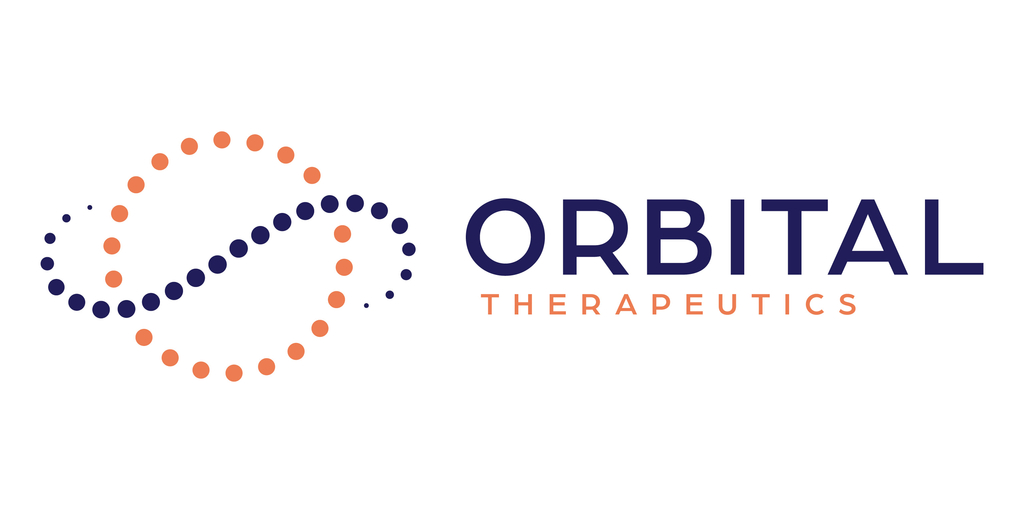
US-based RNA medicine developer Orbital Therapeutics raised $270m in series A funding from investors including health insurer Heritage Medical Systems, diversified holding group Exor and Alexandria Venture Investments, part of life sciences property investment trust Alexandria Real Estate Equities. Founded in 2022, Orbital has developed an RNA therapeutics platform, offering a portfolio of RNA therapeutics across a range of human diseases and conditions, including areas like immunomodulation, protein replacement, and regenerative medicine.
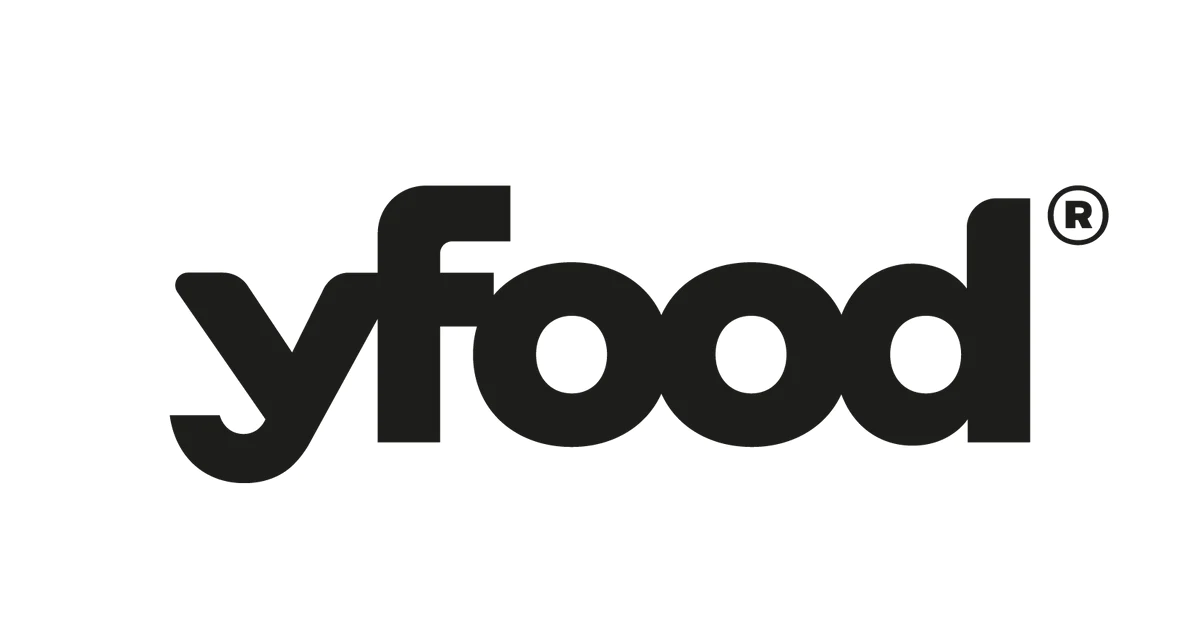
Germany-based nutrition drink producer YFood received €15m ($16.3m) in series B funding from investors including daily cooperative Fonterra. Venture capital firm Felix Capital led the round, which also featured VC firm Five Seasons Ventures and investment platform New Ground Ventures. Founded in 2017, YFood develops and produces a range of nutritious food products, particularly a range of drinks it refers to as ready-to-drink meals, which combine high levels of protein with a blend of 26 vitamins and minerals.
Exits
GCV Analytics tracked 22 exits involving corporate venturers as either acquirers or exiting investors in the second month of this year. The transactions included 19 acquisitions, two initial public offerings (IPO) and one other transaction.
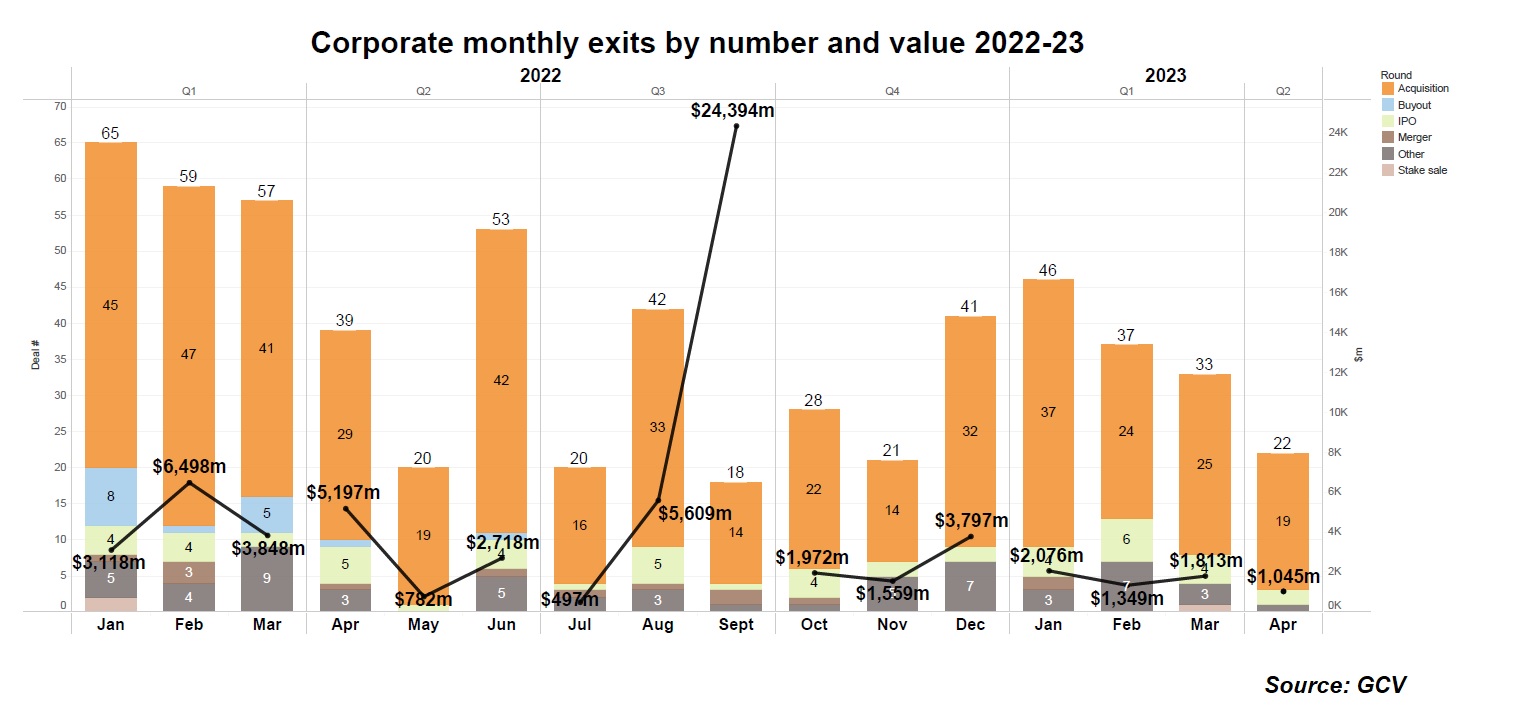
The exit count was significantly down from April 2022 figure this year (39) and even lower than in January this year (45). The total estimated exited capital stood at $1.05bn.
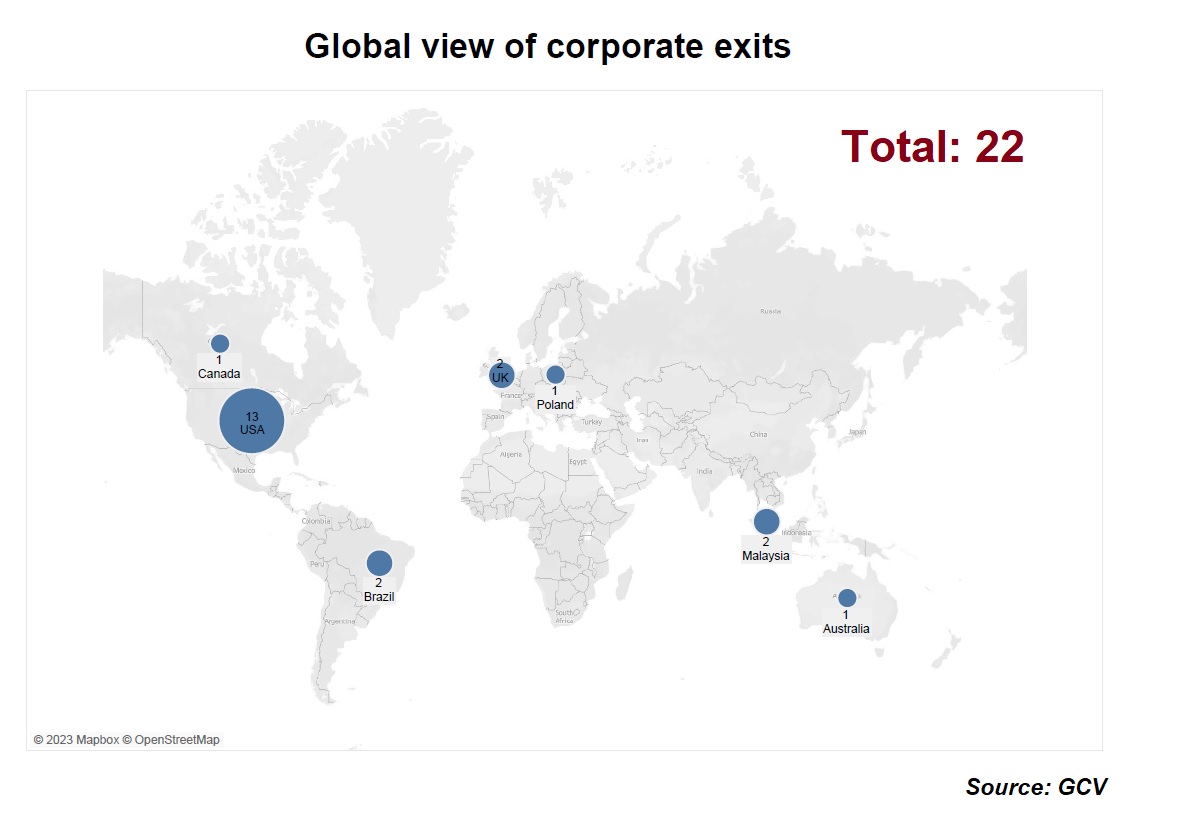
The trend in these figures continues to show how far public and M&A markets are from the bull market of 2020-21. Moreover, a good chunk of the top ten exits were concentrated in-life sciences and logistics services. The following were some of the more interesting top exits.

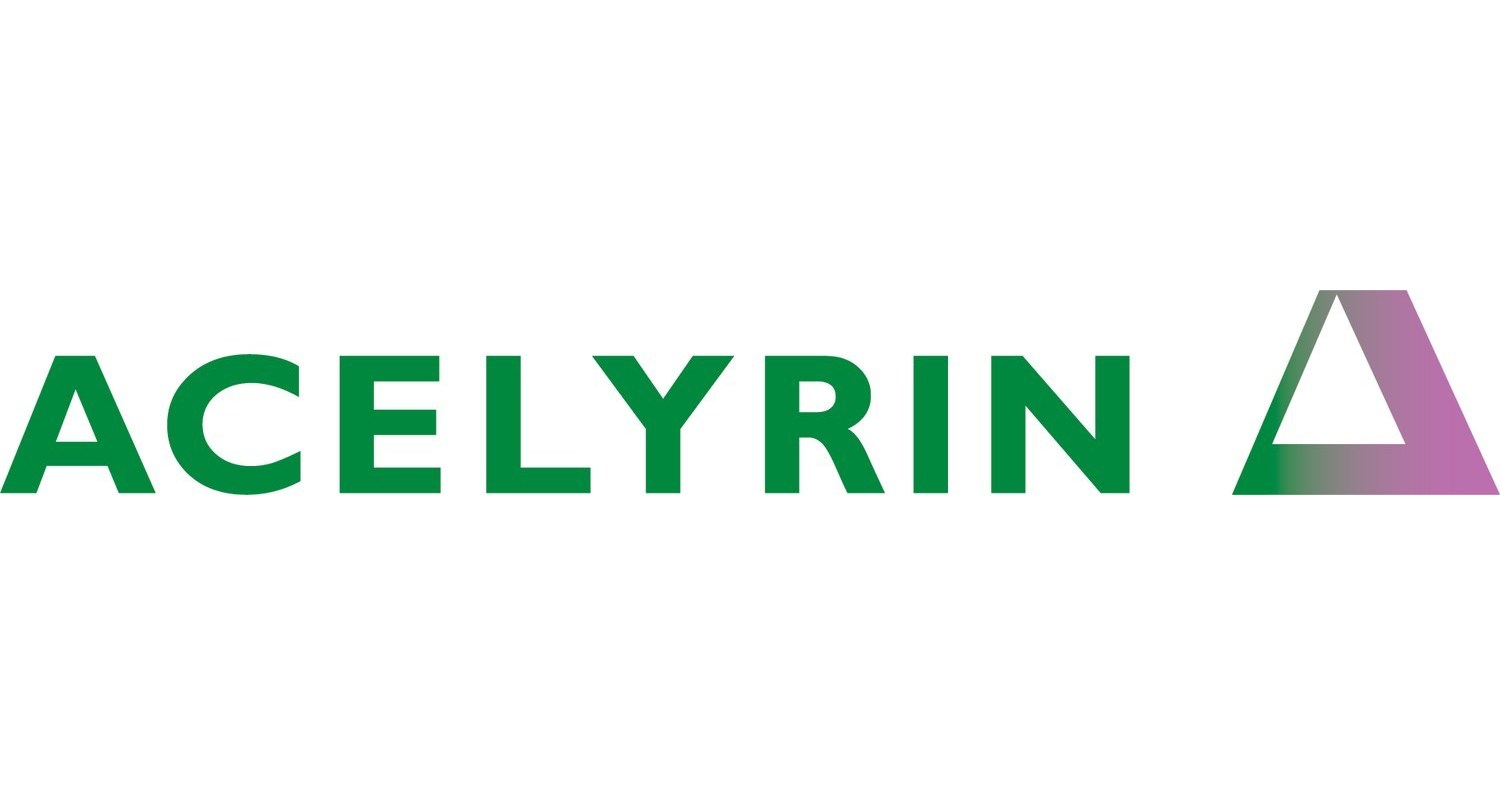
Acelyrin, a US-based inflammatory disorder drug developer backed by industrial conglomerate Access Industries, filed to raise $100m in an IPO on the Nasdaq Global Market. It ended up raising $540 million in the IPO under the ticker symbol of SLRN. A total of 30 million shares were sold at $18 per share, valuing the company at $1.67bn. Acelyrin is clinical biopharmaceutical company whose lead drug in clinical trials, according to the Wall Street Journal, targets hidradenitis suppurativa, in which painful bumps form under the skin as well as psoriatic arthritis, a form of arthritis affecting some psoriasis patients.
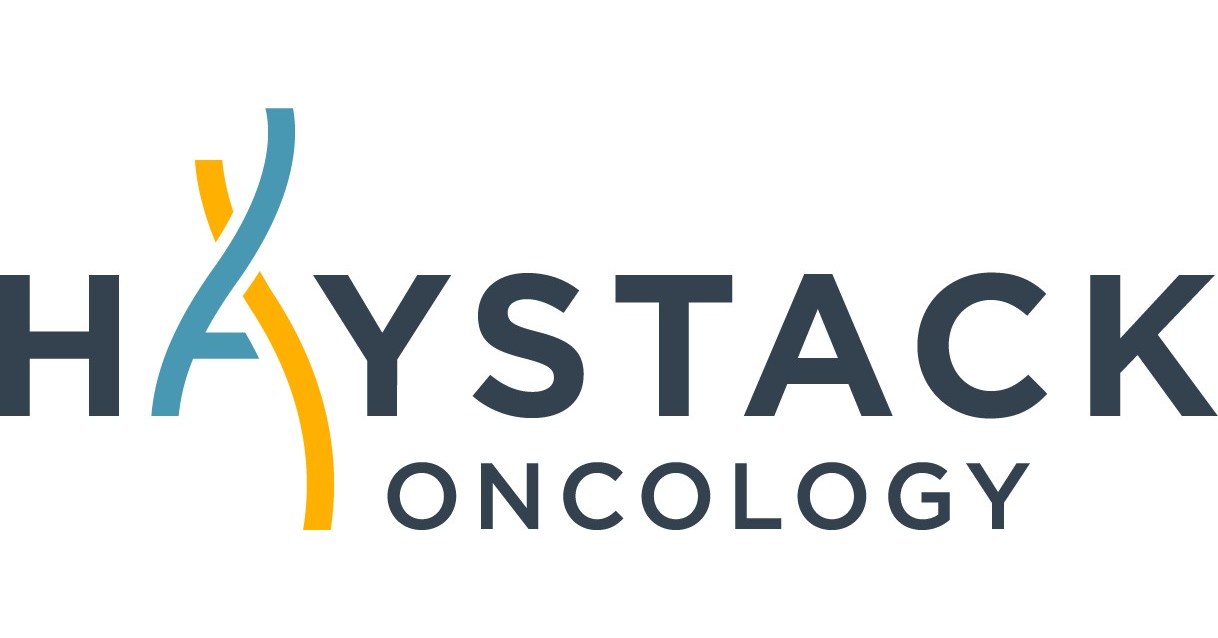
Medical lab operator Quest Diagnostics agreed to acquire Haystack Oncology, a cancer-focused blood diagnostics technology developer backed by corporates Bruker, Exact Sciences and Alexandria Real Estate Equities, for up to $450m. The deal involved $300m in cash with the remainder dependent on test performance milestones. The company is developing a liquid biopsy diagnostic technology designed to optimise treatment strategies and improve outcomes for cancer patients.

US-based additive manufacturing company Xjet filed to go public on the Nasdaq stock exchange under the ticker symbol of XJET. Its previous corporate backers include semiconductor maker Applied Materials and software company Autodesk as well as industrial digital printing company Landa. Xjet develops and manufactures 3D printing solutions that jet directly the actual materials from which the parts are being made. Its patented technology is based on a Nano-Particles Jetting, a process that creates extremely thin layers of ceramics or metal materials.
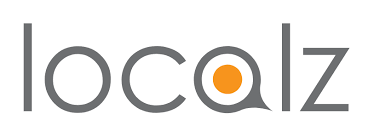
Australia-based customer engagement software developer Localz, which counts among its backers carrier service provider Dynamic Parcel Distribution, was acquired for £6.2m ($7.7m) by software developer Descartes Systems Group. Founded in 2013, the company has developed customer engagement software, which combines real-time location tracking and two-way communication to automate and simplify everyday activities in last-mile customer experience.
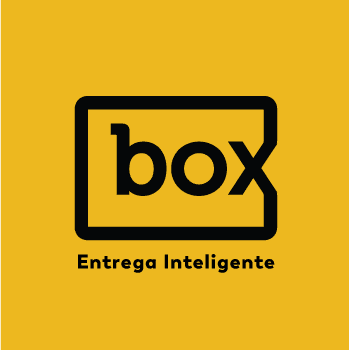
Brazil-based delivery platform Box Delivery was acquired by Rappi for an undisclosed amount. The company counts real estate investment firm Aliansce Sonae among its previous backers. Founded in 2013, Box Delivery had developed a platform for food delivery services, which manages orders from different food ordering applications in one place.
